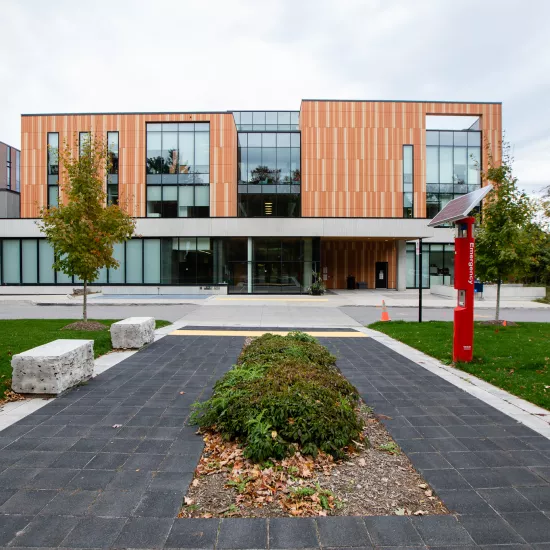About
Project Description
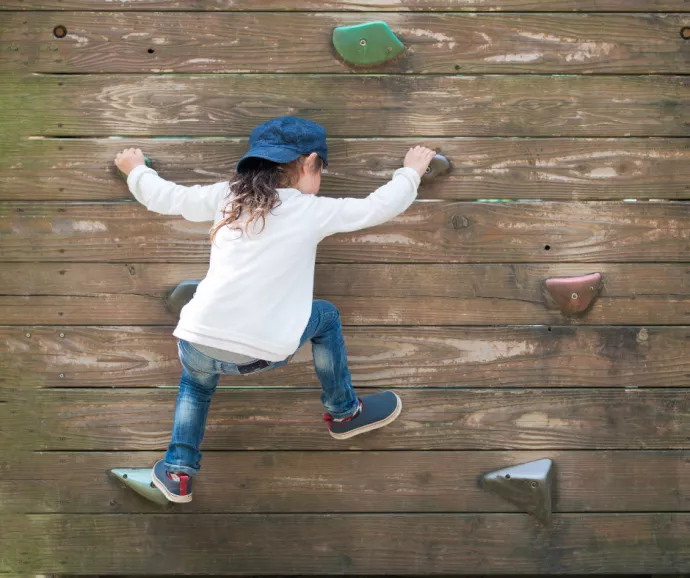
Adversity and the Development of Affective and Prosocial Trajectories (ADAPT)
What?
ADAPT is a longitudinal research project that examines the development of children’s kindness and wellbeing in contexts of environmental adversity, such as poverty and pandemic-related hardship, as well as hardship at the familial (e.g., parental stress, perceived ethnic discrimination, depression) and community (e.g., low neighborhood trust) levels.
Why?
Kindness reflects an understanding of the preciousness of every human life and means treating both oneself and others with gentleness. Therefore, kindness is foundational for reaching one’s full potential, fostering the wellbeing of oneself and others, and adapting to adversity across the lifespan. Research has consistently shown that prosocial emotions, such as sympathy, motivate kind actions, such as helping others in need, which together help children reach their full potential and foster the potential of others. However, we know less about how kindness unfolds during the early years and how exposure to environmental stressors affects kindness and healthy development. Our goal is to understand how kindness and child wellbeing develop across the early years, and how these processes are influenced by environmental adversities.
Who?
We begin our study with 6- to 18-month-old children and their caregivers. The first year of the study is online and caregivers are the sole participants. We will then follow up with these same families annually a total of six times (i.e., until children are about six years old). We are focusing on children and families in the Peel region.
How?
We are immersing ourselves into the community to engage families (e.g., within EarlyON Child and Family Centres). At each time of assessment, we administer various measures of children’s kindness, wellbeing, family environment, and community.
Impact?
Findings from this project will contribute to knowledge on the origins of kindness and child wellbeing from early on in development, and how environmental adversities influence the development of children’s kindness and wellbeing. Ultimately, this knowledge will inform educational strategies and early interventions that will help children with different capacities and backgrounds develop and sustain kindness and wellbeing across the lifespan.
We also support and give back to our partnering community centres and the children and families connected to them by offering professional learning workshops and resources for community centre staff to support families involved in their programming, as well as more direct resources and workshops for participating families.

Team
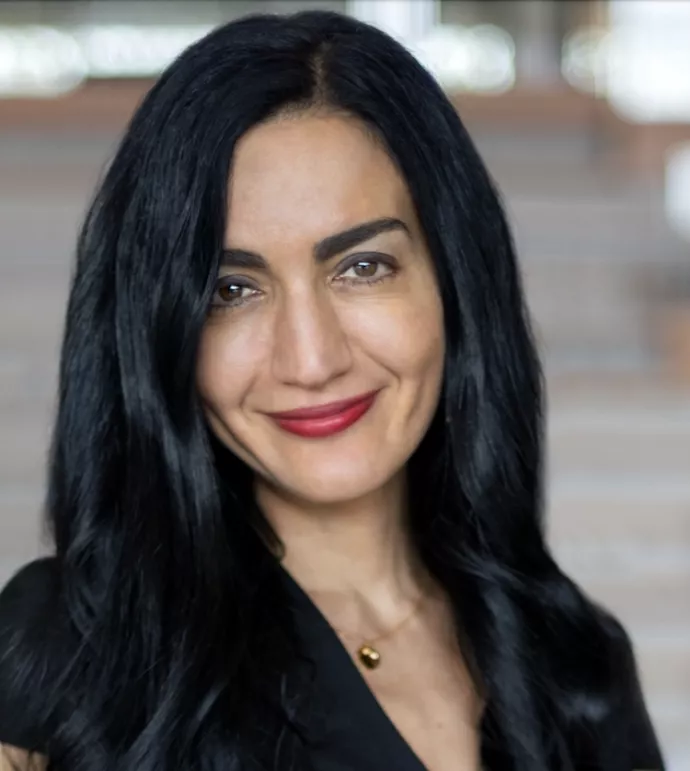
Dr. Tina Malti, Principal Investigator
Tina Malti is a professor of psychology and founding director of the Laboratory for Social-Emotional Development and Intervention (SEDI) at the University of Toronto, as well as the founding director of the Centre for Child Development, Mental Health, and Policy (CCDMP) at the University of Toronto Mississauga, which encompasses the SEDI Lab’s research. ⇾ Click here to learn more about Dr. Malti and her work.
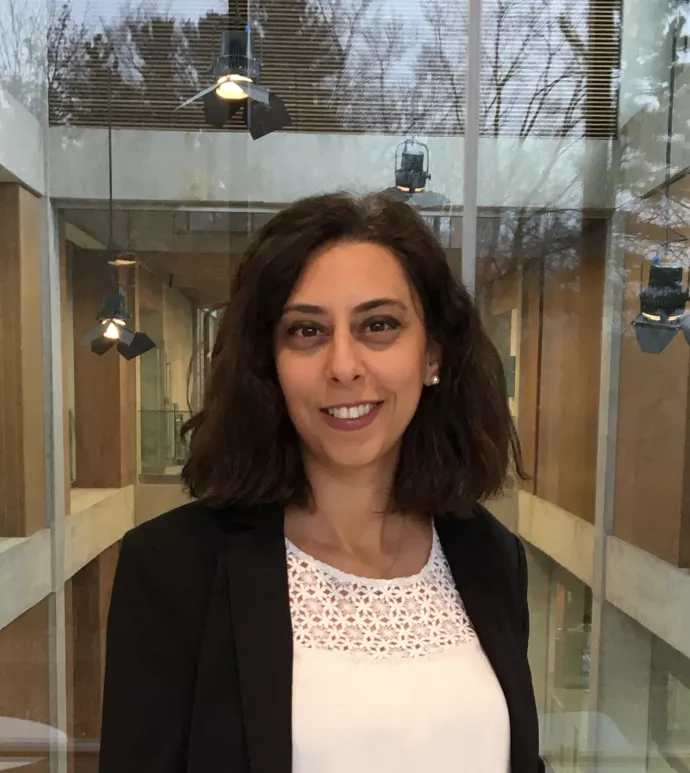
Dr. Melis Yavuz, Postdoctoral Fellow
Melis Yavuz is a postdoctoral fellow at the CCDMP. She received her Ph.D. in Developmental Psychology from Koç University in Turkey. Her research interests focus on children’s social-emotional development. Specifically, she is interested in exploring how social emotions and behaviours (e.g., sympathy, prosocial behaviours, problem behaviours) develop in the early years. She is also interested in the roles of contextual and individual risk and protective factors in children's social-emotional development. For example, she has examined the roles of parenting and child temperamental characteristics in child anxiety, depression, and prosocial behaviors. Lastly, she is interested in how socio-economic status and cultural factors are related to parenting and child outcomes, both concurrently and across time. ⇾ Click here to learn more about Dr. Yavuz and her work.
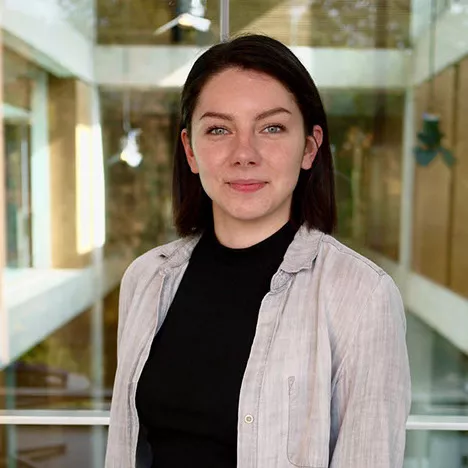
Emma Galarneau, Ph.D. Student
Emma Galarneau received her master's degree in developmental psychology from the University of Toronto in 2019 and her bachelor's degree in psychology from McGill University in 2017. She is interested in understanding how environmental stress and social-emotional skills (e.g., emotion regulation) influence the development of children's social behaviours and resilience. ⇾ Click here to learn more about Emma Galarneau and her work.

Chanel Tsang,
Administrative Assistant & Community Liaison
Chanel received her bachelor’s degree from the University of Toronto and spent more than fifteen years in the education, early years, and non-profit sectors. She facilitated a drop-in program to support families where she developed her passion for working with families and young children, community building and engagement, and social-emotional development and health. Her current work weaves many of these experiences together as she assists the centre’s commitment to supporting families and practitioners in promoting children’s social-emotional development, learning, and well-being.
⇾ Click here to learn more about Chanel Tsang and her work.
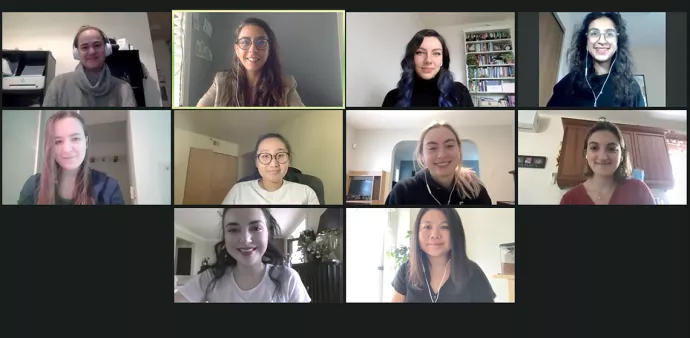
We also have a wonderful team of undergraduate volunteers who work on the ADAPT project, including Danielle Mitrevski, Emma Bognar, Laura Cauchi, Zainab Haseeb, Briana Medeiros, Abby Walker Mitchell, and Gizem Vatansever.
News & Updates
December 2020
Online data collection begins! An incentive for participating has been added: A $10 gift card for completing the online questionnaire and an entry to a raffle to win one of three $50 gift cards. You can also receive additional entries into this raffle for each caregiver you refer to participate in our study (who agrees to participate). Please contact us (maltilab.adapt@utoronto.ca) for more details.
March 2020
To ensure the safety of our participants, community partners, and lab members, we will be conducting the first wave of data collection online. Data for the first year of this study (i.e., when children are 6 to 18 months old) will be obtained from caregivers through online questionnaires. All future waves will be conducted in person with a full battery of questionnaire, interview, behavioural, and biological measures.
August 2019
We are excited to announce that we will be partnering with Dixie Bloor Neighbourhood Centre for the ADAPT project. We look forward to meeting the families at their EarlyON Child and Family Centres.
Resources for Families
Our Partners
⇾ Dixie Bloor Neighbourhood Centre
⇾ Social Sciences and Humanities Research Council of Canada (SSHRC)
⇾ University of Toronto Mississauga
FAQ
Location?
For the first year of our study, we will only be asking caregivers to fill out online questionnaires. For the second year onwards, the study will occur in one of our participating community centres or in our lab testing space at the University of Toronto Mississauga, depending on your needs and ease of access. Please contact us for more details(maltilab.adapt@utoronto.ca).
How long does one testing session take?
The year 1 online questionnaire takes approximately 30 minutes to complete. For the second wave onwards, the testing sessions will take approximately 1 hour to 1.5 hours from arrival to departure.
How many times do I have to come in?
ADAPT is a 6-year longitudinal study. In the first year of the study, we will be asking caregivers to complete an online questionnaire. In the upcoming years, there will be 1 in-person testing session per year for 5 years (i.e., you and your child will come for a testing session once when they are 2 years old, once when they are 3, once when they are 4, once when they are 5, and then one final time when they are 6). In summary, you will have 1 online testing session and 5 in-person testing sessions.
– A member of our lab will be there to meet you at the agreed upon centre/lab and appointment time. Please consult your confirmation email for more details or contact us at maltilab.adapt@utoronto.ca or 905-301-1541.
Will I receive compensation?
– As a thank you for completing the online questionnaire, you will receive a $10 Amazon gift card and you will be entered into a raffle to win one of three $50 gift cards. You can also receive additional entries into this raffle for each caregiver you refer to participate in our study (who agrees to participate).
– For participating in the second wave onward, you will receive a $10 gift card and your child will receive an age-appropriate book for each annual in-person testing session.
How do I get there? (i.e., Transportation & Parking)
– On the day of your appointment, a member of our lab will be there to meet you at the agreed upon centre and appointment time. Please consult your confirmation email for more details, or contact us for more details if you have any questions about your appointment (maltilab.adapt@utoronto.ca)
If you are coming to our lab space (circled red ○ in the map below) at the University of Toronto Mississauga:
– Parking pass: A member of our lab will be there to meet you upon your arrival with a parking pass that you will put on the front dashboard of your vehicle and return to us once you have completed the study. Please call approximately 5 minutes prior to your arrival at the university to allow time for the lab member to meet you at the parking space (circled yellow ○ in the map below).
– If you are arriving by bus: The bus will stop at the University of Toronto Mississauga lay-by bus terminal (circled orange ○ in the map below). Please call our lab approximately 5 minutes prior to your arrival at the bus terminal. Once you have arrived, a lab member will meet you when you get off the bus and accompany you to the laboratory.
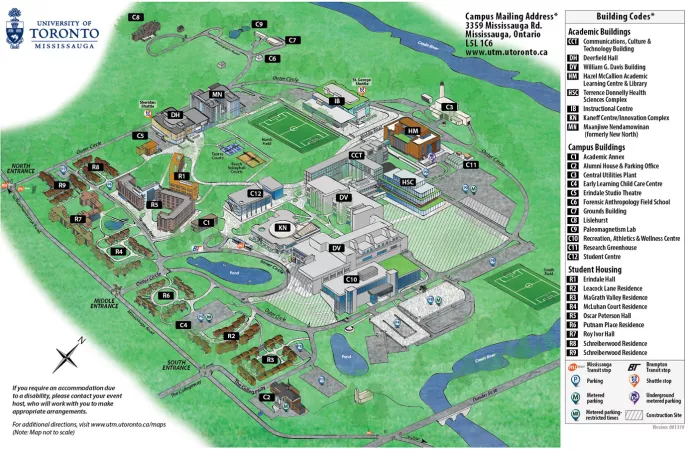
If you are coming to one of the community centres you are already associated with (e.g., an EarlyON centre):
– A member of our lab will be there to meet you at the agreed upon centre and appointment time. Please consult your confirmation email for more details or contact us at maltilab.adapt@utoronto.ca or 905-301-1541.
When is my appointment?
A member of our team will contact you by phone and/or email to book your appointment and to remind you of your upcoming appointment.
What happens if I change my mind about participating?
At any point leading up to, during, or after the study, you and your child are free to withdraw from participation. If we have already collected data from you, we will gladly erase it from our records at your request.
What happens to the data collected?
Your data will be stored in an electronic file on a secured server within the University of Toronto Mississauga with an ID number assigned for you and will not include personally identifiable information. The information we collect is only used for the purposes described to you in the consent form. The group-level results from our studies are typically first presented at a professional scientific conference and then reported in a scientific journal and shared with the public through infographics and social media outlets. At no point will we share any information identifying individual children or parents.
Will my data be kept confidential?
Yes. Any information we receive from families, through registration or participation in any of our studies, is never shared with anyone outside of our laboratory. All participants in our studies are identified using an ID number rather than by name in all research records.
Can I see my child’s results?
– We will only report general trends across children, such as differences between age groups. We will not analyze or report any individual child’s results.
– Throughout the study and as the study comes to an end, we will provide a description of our overall, group-level findings to families through our newsletter, including information on any scientific presentations, journal publications, and/or knowledge translation material emerging from the study.
Selected Publications
for a complete list of publications, go to: Journal Articles, Chapters, and Books | Centre for Child Development, Mental Health, and Policy (utoronto.ca)
Malti, T., & Davidov, M. (forthcoming, 2022). Integrative approaches to nurture prosociality in the context of environmental adversity. In T. Malti & M. Davidov (Eds.), Handbook of prosociality: Development, mechanisms, promotion. Cambridge, UK: Cambridge University Press.
Malti, T. (2020). Kindness: A perspective from developmental psychology. European Journal of Developmental Psychology. Early online publication, October 12, 2020. ⇾https://doi.org/10.1080/17405629.2020.1837617 ⇾PDF
Malti, T., & Dys, S. P. (2017). From being nice to being kind: Development of prosocial behaviors. Current Opinion in Psychology. ⇾http://doi.org/10.1016/j.copsyc.2017.07.036 ⇾PDF
Malti, T., Zuffianò, A., Cui, L., Ongley, S.F., Peplak, J., Chaparro, M.P., & Buchmann, M. (2016). Children’s sympathy, guilt, and moral reasoning in helping, cooperation, and sharing: A six-year longitudinal study. Child Development, 87(6), 1783–1795. ⇾http://doi.org/10.1111/cdev.12632
Malti, T., Colasante, T., Zuffianò, A., & de Bruine, M. (2016). The physiological correlates of children’s emotions in contexts of moral transgressions. Journal of Experimental Child Psychology, 142, 372–381. ⇾http://doi.org/10.1016/j.jecp.2015.09.017 ⇾PDF
Contact Us
If you are interested in participating, please reach us via:
Cell phone: 905-301-1541
Email: Maltilab.adapt@utoronto.ca
Contact Information
The SEDI Lab is located on the 4th floor of Deerfield Hall at the University of Toronto Mississauga (UTM).
Our lab’s address is:
3359 Mississauga Road North
Department of Psychology
Deerfield Hall, Fourth Floor, Room 4055
Mississauga, ON
L5L 1C6
Cell phone: 905-301-1541
Email: Maltilab.adapt@utoronto.ca



